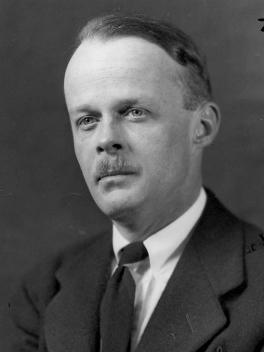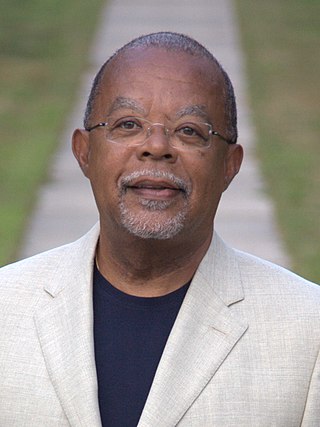
Edith Wharton was an American writer and designer. Wharton drew upon her insider's knowledge of the upper-class New York "aristocracy" to portray realistically the lives and morals of the Gilded Age. In 1921, she became the first woman to win the Pulitzer Prize in Fiction, for her novel The Age of Innocence. She was inducted into the National Women's Hall of Fame in 1996. Among her other well known works are The House of Mirth, the novella Ethan Frome, and several notable ghost stories.

Edmund Wilson Jr. was an American writer, literary critic and journalist. He is widely regarded as one of the most important literary critics of the 20th century. Wilson began his career as a journalist, writing for publications such as Vanity Fair and The New Yorker. He helped to edit The New Republic, served as chief book critic for The New Yorker, and was a frequent contributor to The New York Review of Books. Wilson was the author of more than twenty books, including Axel's Castle, Patriotic Gore, and a work of fiction, Memoirs of Hecate County. He was a friend of many notable figures of the time, including F. Scott Fitzgerald, Ernest Hemingway, and John Dos Passos. His scheme for a Library of America series of national classic works came to fruition through the efforts of Jason Epstein after Wilson's death. He was a two-time winner of the National Book Award and received the Presidential Medal of Freedom in 1964.

John Orley Allen Tate, known professionally as Allen Tate, was an American poet, essayist, social commentator, and poet laureate from 1943 to 1944.
Sir Stuart Newton Hampshire was an English philosopher, literary critic and university administrator. He was one of the antirationalist Oxford thinkers who gave a new direction to moral and political thought in the post-World War II era.
John William Ward (1922–1985), was the 14th President of Amherst College, a veteran of World War II, Professor of English and History at Princeton University, and Chairman of the Ward Commission.

Francis Otto Matthiessen was an educator, scholar and literary critic influential in the fields of American literature and American studies. His best known work, American Renaissance: Art and Expression in the Age of Emerson and Whitman, celebrated the achievements of several 19th-century American authors and had a profound impact on a generation of scholars. It also established American Renaissance as the common term to refer to American literature of the mid-nineteenth century. Matthiessen was known for his support of liberal causes and progressive politics. His contributions to the Harvard University community have been memorialized in several ways, including an endowed visiting professorship.
Dame Hermione Lee, is a British biographer, literary critic and academic. She is a former President of Wolfson College, Oxford, and a former Goldsmiths' Professor of English Literature in the University of Oxford and Professorial Fellow of New College. She is a Fellow of the British Academy and of the Royal Society of Literature.
Roger Gilbert Lancelyn Green was a British biographer and children's writer. He was an Oxford academic who formed part of the Inklings literary discussion group along with C. S. Lewis and J. R. R. Tolkien. He had a positive influence on his friend, C.S. Lewis, by encouraging him to publish The Lion, the Witch and the Wardrobe.

Van Wyck Brooks was an American literary critic, biographer, and historian.
Leo Marx was an American historian, literary critic, and educator. He was Professor of the History and Philosophy of Science at the Massachusetts Institute of Technology. He is known for his works in the field of American studies. Marx studied the relationship between technology and culture in 19th and 20th century America.

Percy Lubbock, CBE was an English man of letters, known as an essayist, critic and biographer. His controversial book The Craft of Fiction gained influence in the 1920s.

Renato Poggioli, was an Italian academic specializing in comparative literature. After 1938, he lived in the United States. At the time of his death, he was the Curt Hugo Reisinger Professor of Slavic and Comparative Literature at Harvard University. A prolific writer and translator, who was fluent in five languages, he is considered one of the founders of the academic discipline of comparative literature in the United States.

Charles Du Bos was a French essayist and critic, known for works including Approximations (1922–37), a seven-volume collection of essays and letters, and for his Journal, an autobiographical work published posthumously from 1946 to 1961. His other work included Byron et le besoin de la fatalité (1929), a study of Lord Byron, and Dialogue avec André Gide, an essay on his friend André Gide. Influenced by thinkers including Henri Bergson, Georg Simmel and Friedrich Nietzsche, Du Bos was well-known as a literary critic in France in the 1920s and 1930s. He maintained a distance from the political developments of those decades, while nonetheless seeking in his writing to reframe political phenomena as ethical problems. Alongside Gide and the American novelist Edith Wharton, he was involved in providing aid to Belgian refugees in Paris following the 1914 German invasion of Belgium. Raised Catholic, Du Bos lost his faith as a young man, then regained it in 1927, and regarded this conversion as the central event of his life.
Kenneth Morrison Roemer, an Emeritus Professor at the University of Texas at Arlington, an Emeritus Fellow, UT System Academy of Distinguished Teachers, and a former Piper Professor of 2011, Distinguished Scholar Professor, and Distinguished Teaching Professor at the University of Texas at Arlington. He is the author or editor of four books on utopian literature, including The Obsolete Necessity (1976), nominated for a Pulitzer, and three books on American Indian literatures, including the co-edited Cambridge Companion to Native American Literature (2005). His collection of personal essays about Japan, Michibata de Dietta Nippon (2002) (A Sidewalker’s Japan), was a finalist for the Koizumi Yakumo Cultural Prize. He is the project director of a digital archive of tables of contents of American literature anthologies Covers, Titles, and Tables: The Formations of American Literary Canons.
Adam C. Begley is an American biographer. He was the books editor for The New York Observer from 1996 to 2009.

Louis Decimus Rubin Jr. was a noted American literary scholar and critic, writing teacher, publisher, and writer. He is credited with helping to establish Southern literature as a recognized area of study within the field of American literature, as well as serving as a teacher and mentor for writers at Hollins College and the University of North Carolina at Chapel Hill; and for founding Algonquin Books of Chapel Hill, a publishing company nationally recognized for fiction by Southern writers. He died in Pittsboro, North Carolina and is buried at the Kahal Kadosh Beth Elohim Cemetery in Charleston, South Carolina.
Victor Henri Brombert is an American scholar of nineteenth and twentieth century literature, the Henry Putnam University Professor at Princeton University.

Henry Louis Gates Jr. is an American literary critic, professor, historian, and filmmaker who serves as the Alphonse Fletcher University Professor and the director of the Hutchins Center for African and African American Research at Harvard University. He is a trustee of the Gilder Lehrman Institute of American History. He rediscovered the earliest known African-American novels and has published extensively on the recognition of African-American literature as part of the Western canon.

Mary Cadwalader Rawle Jones was an American author, socialite, and social leader during the Gilded Age.










